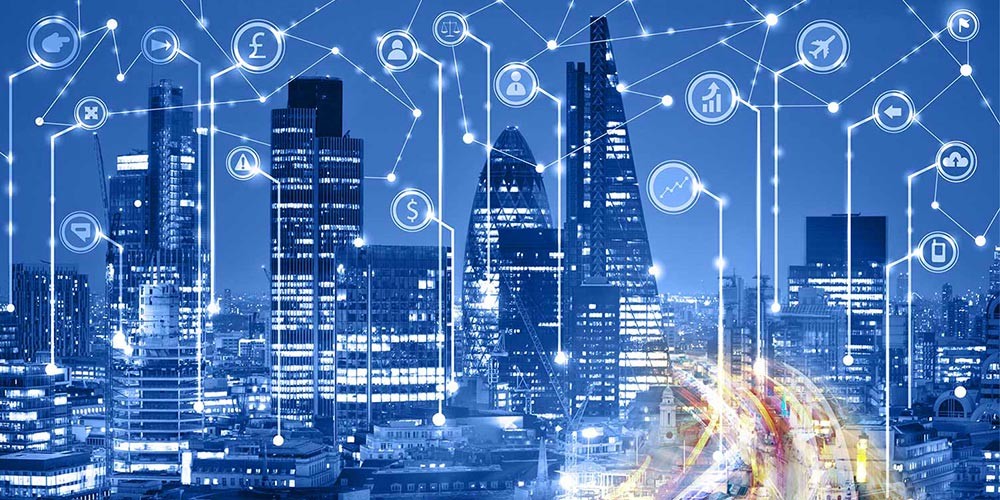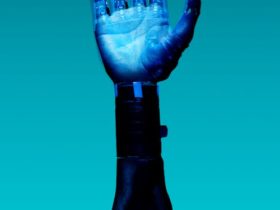The concept of a smart city is no longer the stuff of science fiction. Today, cities around the world are leveraging the power of data science to transform urban living.Cities are obtaining important insights by gathering and evaluating enormous volumes of data. These insights are then applied to optimize everything from resource management to traffic flow, eventually producing a more effective, sustainable, and livable environment for residents.
What is Data Science and How Does it Apply to Smart Cities?
Data science course in mumbai is a multidisciplinary field that combines statistics, computer science, and domain knowledge to extract meaningful insights from data. In the context of smart cities, this entails gathering information from several sources, including:
● Traffic sensors to monitor traffic patterns and congestion
● Environmental sensors to measure air quality and noise levels
● Public transportation systems to track ridership and optimize routes
● Utility meters to track water and electricity use
● Using social media to assess public opinion and pinpoint areas in need of development
Once collected, this data is analyzed by data scientists using a variety of techniques, including:
● Using machine learning to recognize trends and forecast
● Data visualization to communicate complex information in an easily understandable way
● Statistical modelling to quantify relationships between different variables
By harnessing the power of data science, smart cities can achieve a number of key benefits:
Transforming Urban Mobility with Data Science
Traffic congestion is a major headache for city dwellers, leading to wasted time, increased pollution, and frustration. Data science offers a powerful tool to tackle this challenge. Here’s how:
● Real-time traffic monitoring: Sensors embedded in roads can collect data on traffic flow, allowing cities to identify bottlenecks and adjust traffic light timings dynamically.
● Predictive traffic management: By analyzing historical data and real-time conditions, data scientists can predict future traffic patterns and suggest proactive measures to alleviate congestion.
● Smart parking solutions: Parking space sensors can minimize emissions and save time spent looking for a place by detecting occupancy and directing vehicles to open locations.
● Public transportation optimization: Cities may enhance the overall effectiveness of public transportation systems by optimizing bus routes, modifying timetables, and utilizing data on usage trends.
These data-driven approaches not only improve traffic flow but also contribute to a cleaner and more sustainable urban environment.
Optimizing Resource Management with Data Science
Cities are large consumers of resources like energy and water. Data science can help them manage these resources more efficiently:
● Smart grids: Optimizing energy distribution and lowering peak demand may be accomplished with the use of real-time data on energy use.
● Predictive maintenance: Sensor data from infrastructure can be analyzed to predict equipment failures, allowing for preventative maintenance and avoiding costly disruptions.
● Water leak detection: Smart meters can identify unusual water usage patterns, indicating potential leaks that can be addressed quickly.
● Waste management optimization: Data on waste generation patterns can help cities optimize collection routes and implement targeted waste reduction initiatives.
By employing data science in resource management, cities can not only save money but also reduce their environmental footprint.
Enhancing Public Safety and Security with Data Science
Public safety is a top priority for any city. Additionally, data science may be a useful tool in this field:
● Crime prediction: By analyzing historical crime data and social media trends, data scientists can identify areas at high risk of crime and deploy resources accordingly.
● Emergency response optimization: Real-time traffic data can be used to optimize emergency response routes, ensuring faster response times for fire, ambulance, and police services.
● Suspicious activity detection: Video surveillance systems equipped with computer vision algorithms can detect suspicious behavior and alert authorities.
● Citizen engagement: Social media data analysis can help identify concerns and anxieties within the community, allowing for proactive engagement and improved public safety initiatives.
Data science plays a crucial role in creating a safer and more secure urban environment for all residents.
Improving Citizen Engagement and Quality of Life with Data Science
Smart cities aim to improve residents’ quality of life in addition to utilizing technology. Data science can be used to improve citizen engagement and overall well-being:
● Citizen feedback analysis: Social media sentiment analysis can help cities understand citizen concerns and preferences, allowing for more responsive governance.
● Personalized services: Delivering more specialized and individualized services, such as educational materials or healthcare initiatives, may be done by utilizing data on the requirements and preferences of the populace.
● Improved urban planning: Data on demographics, traffic patterns, and resource usage can inform urban planning decisions, resulting in more livable and sustainable neighbourhoods.
● Environmental monitoring: Data collected from environmental sensors can be used to track air quality and noise levels, allowing cities to take action towards creating a healthier environment.
The Skills Needed to Build Smart Cities: A Call for Data Scientists
The transformation of cities into data-driven ecosystems requires a skilled workforce, particularly data scientists and data analysts. These professionals possess the expertise to collect, clean, analyze, and interpret data, translating raw information into actionable insights for urban planners, policymakers, and engineers.
Data Analyst Course: Aspiring data analysts can equip themselves with the necessary skills through comprehensive data analyst course. These courses typically cover topics such as:
● Data wrangling and manipulation techniques
● Statistical analysis and modeling
● Data visualization tools and best practices
● SQL for data retrieval and querying
● Communication and storytelling with data
Data Scientist Course: For those seeking a more advanced role, data science course delve deeper into areas like:
● Machine learning algorithms and applications
● Deep learning and artificial intelligence
● Big data processing and management techniques
● Cloud computing platforms for data analysis
● Predictive modeling and forecasting
By investing in data science education and training, cities can build a talent pool equipped to drive innovation and propel them towards a smarter future.
The Challenges and Considerations of a Data-Driven Approach
While data science holds immense potential for smart cities, there are challenges to consider:
● Data privacy concerns: Data collection and usage raise concerns about citizen privacy. Cities need to implement robust data security measures and ensure transparency in data governance.
● Algorithmic bias: Algorithms used in data analysis can perpetuate existing biases. Careful selection and regular audits of algorithms are crucial to mitigate bias and ensure fair outcomes.
● Digital divide: The ability to use technology and possess the digital literacy needed to engage in a data-driven metropolis is not shared by all. Cities need to provide fair access to the advantages of smart city projects and work toward achieving digital inclusion.
Addressing these challenges is essential for building trust and ensuring that the benefits of data science are enjoyed by all citizens.
Conclusion: A Brighter Future for Cities Powered by Data Science
Data science is revolutionizing the way cities operate. Cities can become more sustainable, efficient, and livable for their citizens by utilizing data. From optimizing traffic flow to improving public safety, data science offers a multitude of solutions for urban challenges. As cities continue to invest in data science expertise and infrastructure, we can look forward to a future where smart cities thrive and enhance the quality of life for all.
Business Name: ExcelR- Data Science, Data Analytics, Business Analyst Course Training Mumbai
Address: Unit no. 302, 03rd Floor, Ashok Premises, Old Nagardas Rd, Nicolas Wadi Rd, Mogra Village, Gundavali Gaothan, Andheri E, Mumbai, Maharashtra 400069, Phone: 09108238354, Email: enquiry@excelr.com.








